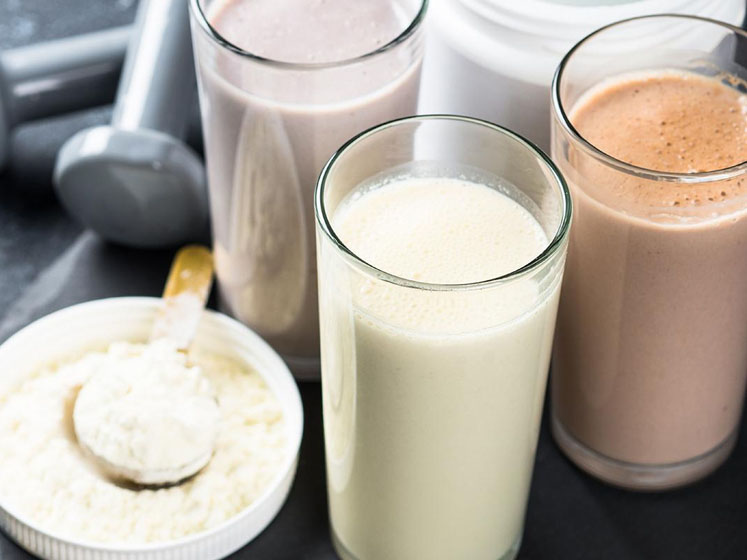This has also impacted the ingredient industry: immune defence, gut health and geriatric nutrition products are more in demand than ever.
The Fi Global Insights report, “Health ingredients 2021,” examines key trends and the current challenges facing manufacturers. Without a doubt, health ingredients are one of the most forward-moving sectors of the industry.
Thanks to COVID-19, the link between nutrition and health is in sharp focus … and it’s not just immune health that’s coming to the fore. Consumers are increasingly interested in taking a holistic approach, from sleeping well to stress management to gut health, and implementing a preventive regime to regain some control of their everyday life.

Sinem Zeybek
It’s no surprise, therefore, that demand for healthy foods, functional ingredients and supplements is on the rise, particularly among vulnerable groups such as the elderly or diabetics. This growth may well continue until (or after) adequate vaccination levels have been achieved, as nobody knows if some countries ever will return to the “old normal.”
Trends 2021: health is more than a functioning body
“Fi Global CONNECT — Health Ingredients in the Spotlight” in June will focus on this year’s macro trends, including topics such as intestinal and immune health, healthy ageing and active nutrition.
Immune health: According to FMCG Gurus, 17% of people worldwide say they have adjusted their diet — often with nutraceuticals — to focus on immune health.
Mintel states that most claims related to immune health originate in the European Union, followed by Asia, North America and Latin America. In Europe, for example, 12 immune-related health claims exist for products containing vitamin A, B6, B12, C and D, and the minerals folate, copper, iron, selenium and zinc.
But it’s not just about products that directly support normal immune function; it’s also about those designed to support “softer” factors (such as better sleep, stress reduction and inner peace).
Research shows that the body’s ability to fight infection — and even the efficacy of its response to vaccines — is impaired if the individual is stressed or sleep deprived.1,2
As such, the link between immunity, sleep and stress is becoming ever more established in consumers’ minds. Yet, in the past 5 years, only 5% of global immune supplements made a functional claim relating to sleep or stress management.3
Gut health: A significant part of the immune system is located in the intestine, making it the largest organ involved in the body’s defence system. The desire to boost immune health, triggered by COVID-19, has led to a spike in global probiotic sales, with the category experiencing around 8% growth during 2020.
Consumers want much more than kimchi, kefir and probiotic yoghurts, however, setting the stage for new products and delivery forms. In the US, Nestlé recently launched GoodBe, a chilled snack bar containing the probiotic Bacillus coagulans.

European companies struggle with the fact that there are currently no approved health claims for probiotics in Europe, although they can still take a multi-ingredient approach.
Actimel, for instance, adds vitamins D and B6 to its “Immune System Fruit & Veg Cultured Shots” to enable an immunity health claim (even though the product’s appeal comes principally from the perceived benefits of fermented L. casei cultures).
Holistic health: In the UK, 65% of consumers say mental and emotional well-being is just as important to them as diet and physical exercise, with only 8% seeing it as less important.3
For generations, people have relied on the health-giving and holistic healing power of nature; what’s new, though, is that many traditionally used herbs and botanicals are now being offered in novel formats.
Chamomile, for instance, is no longer simply a bed-time tea. Australian brand Almo Milk makes almond milk with a “nourishing and calming” chamomile blossom extract, and CocoJune offers a coconut yoghurt flavoured with vanilla and “soothing” chamomile.
Another new development is the topic of “eat pretty.” Achieving beauty from within through healthy nutrition and functional food is becoming more and more important.
For example, the number of edible collagen products and supplements making beauty claims has risen significantly in the last 5 years.5 Kalumi makes protein bars with marine-based collagen to promote hair, skin and nail health, for instance, whereas Beauty Food makes cookies and nut butters with collagen.

The trend for holistic health is also driving interest in adaptogens and nootropics. Adaptogens are botanical substances that claim to support the body by restoring balance and helping people to cope with physical and mental stress, whereas nootropics are said to improve cognitive function (memory, alertness and focus).
L-Theanine, found in green tea leaves, is thought to impact serotonin, sleep hormones and other neurotransmitters. In 2016, Coca-Cola launched L-theanine-enriched “Sleep Water” in Japan, and British start-up, Fungtn, makes a range of low-alcohol craft beers brewed with a blend of adaptogenic mushrooms that, reportedly, allow people to enjoy the flavour of beer without the hangover.
Performance and active nutrition: Even though sports clubs and fitness studios have been closed, many consumers have upgraded their home gyms, used virtual workouts or taken up running/cycling to keep fit during the lockdowns.
Still showing positive overall growth, the global sports nutrition market has experienced a pandemic-induced slump.6 However, active nutrition for leisure athletes, compared with performance nutrition for professionals, remains on trend.
Manufacturers are advised to keep the “new values” of sports nutrition in mind. As with many other segments, consumers want natural or plant-based ingredients. US brand BodyArmor uses coconut water and natural flavours/colours for its electrolyte- and antioxidant-packed hydration drink.
In 1948 the World Health Organization defined health as “a state of complete physical, mental and social well-being, and not merely the absence of disease and infirmity.”4 Never before has this view been more relevant.
Plant-based brand, Orgain, combined pea protein with brown rice, chia seeds and botanicals such as ginger and fermented turmeric to launch a sport line in 2020.
Healthy ageing: In 2050, one in four EU and US citizens will be 65 or older.7 Yet, only 17% of global foods for special medical purposes launched in the past 12 months had a senior claim, which has become even more relevant during the pandemic.8
A better understanding of inflammation, the microbiome and the immune system has led manufacturers to create products that are more beneficial to older people compared with prior offerings. They’re choosing nutrients that support immunity, mental capacity and concentration, and counteract the typical signs of an ageing body.
Nestlé’s BrainXpert, for example, is a ketogenic drink that’s rich in medium-chain triglycerides and milk protein, and is said to improve the cognitive function of people with mild cognitive impairment.9
In August 2020, Perennial launched “Gut & Brain,” a plant-based drink made from pea, soy and rice protein that’s fortified with DHA omega-3 fatty acid, folate, choline and vitamins B6, B12 and E. The product also contains prebiotic fibres to promote the gut microbiota and cognitive health via the gut-brain axis.
Spotting trends is easier than meeting them
To enhance products with functional ingredients, manufacturers have to cope with numerous imponderables. Mother Nature’s offerings are rarely standardised and it takes a lot of expertise to stabilise sensitive active substances and make them usable for industrial processes.
Furthermore, if you want to achieve a specific effect with plant-based ingredients, you may need a high dosage — all while managing taste, texture and price!
Dealing with adulteration and food fraud is also critical: many ingredients are “cut” with cheaper components; natural actives are sometimes completely or partially replaced with artificial ones; and origin/quality information is falsified.
Only with strict raw material controls in place — at incoming goods and on-site during cultivation, by implementing laboratory analyses and maintaining transparency throughout the entire supply chain — can manufacturers ensure consumer confidence and position themselves as suppliers of high-quality ingredients.
References
- https://cdn.ymaws.com/tshp.org/resource/resmgr/r&e_foundation/posters/2020/4584927491328279188_-_Poster.pdf
- www.nhs.uk/live-well/sleep-and-tiredness/why-lack-of-sleep-is-bad-for-your-health.
- E. Schofield, “What Are the Opportunities for Food and Drink Producers to Cater to Consumers' Mental Well-Being?” presentation at Fi Europe CONNECT 2020.
- www.who.int/about/who-we-are/constitution.
- www.cosmeticsdesign-europe.com/Article/2020/07/20/Collagen-a-highly-relevant-holistic-beauty-ingredient-in-2020-says-Mintel.
- www.grandviewresearch.com/industry-analysis/sports-nutrition-market.
- www.un.org/development/desa/pd/sites/www.un.org.development.desa.pd/files/files/documents/2020/Jan/un_2019_worldpopulationageing_report.pdf.
- R. Miller, “The Future of Specialised Nutrition in the Post-COVID-19 World,” presentation at Fi Europe CONNECT 2020.
- www.nestlehealthscience.com/sites/default/files/2020-11/ABSTRACT%20BOOK-MCI_When%20Nutrition%20helps%20Brain%20Energy%20Rescue.pdf




